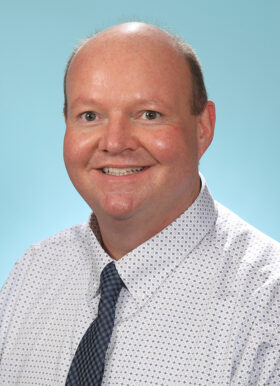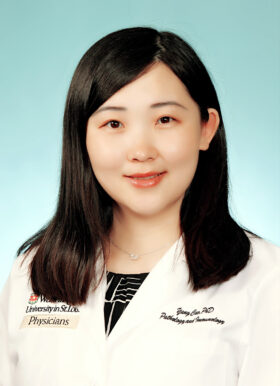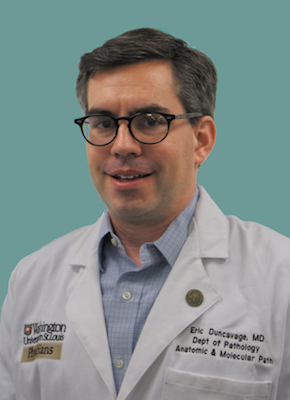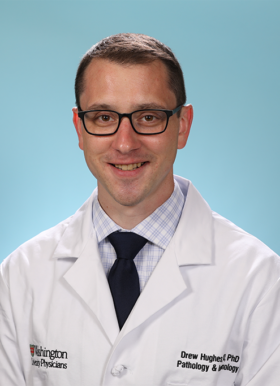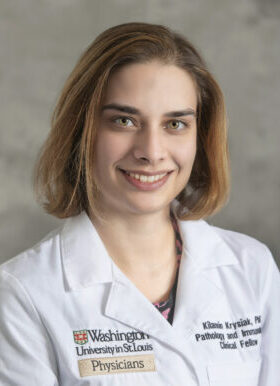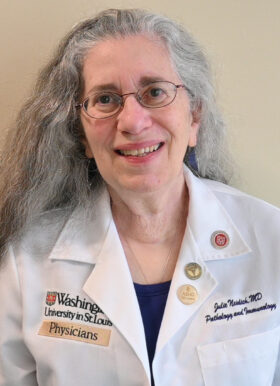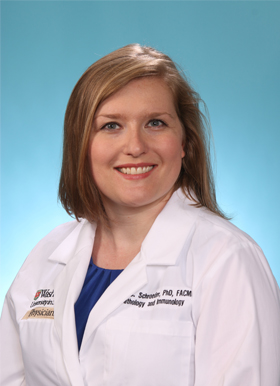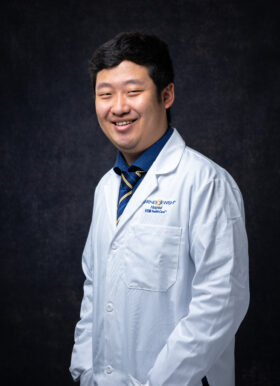
Laboratory Genetics and Genomics Fellowship
Overview
The Laboratory Genetics and Genomics fellowship trains fellows to direct and interpret clinical cytogenetic and molecular genetic tests relevant to the diagnosis and management of human genetic diseases. Diplomates certified in Laboratory Genetics and Genomics act as director and/or consultants in laboratory diagnoses for a broad range of inherited and acquired conditions, including those of Mendelian and chromosomal origin.
Program Details
The training includes rotations through molecular diagnostics, cytogenetics and genomics, biochemical genetics and clinical genetics in the laboratories and clinics of Barnes Jewish Hospital (BJH), and Washington University School of Medicine. Program faculty are all members of the faculty at Washington University and/or the clinical staff of BJH. The hospital and associated clinical sites for outpatient care are located on the same campus as the medical school. Prenatal, neonatal, pediatric, adult, and oncology specimens are tested by the Department of Pathology and Immunology and the BJH labs. Fellows are exposed to all aspects of laboratory genetics and genomics assays including laboratory management, regulatory oversight and communication, with ordering clinicians and patients. Daily teaching conferences are integrated with the pathology training programs of the Department of Pathology and Immunology. Fellows present clinical and research cases regularly throughout the fellowship.
Primary educational goals are to allow trainees to develop the skills to:
Communicate cytogenetic and molecular genetic laboratory results directly to patients, when necessary, and in conjunction with other members of the clinical teamnt here
Supervise and direct operations of a clinical molecular genetics or clinical cytogenetics diagnostic laboratory, including technical expertise, understanding of quality control and assessment procedures and adherence to regulatory requirements (e.g., CLIA, CAP)
Understand basic molecular biology, chromosome biology, genomic mechanisms of disease etiology, as well as the natural history and clinical management of disorders with a cytogenetic or molecular basis
Select and apply the most appropriate current and evolving technologies, including cytogenetic and molecular genetic methodologies, to diagnose human disease
Guide the development and validation of appropriate assays used in the evaluation of disorders with a chromosomal or molecular basis
Interpret a broad range of genetic diagnostic tests, including methodologies that assess for chromosomal aneuploidies, structural chromosome rearrangements, genomic copy number variants, single nucleotide variants, structural changes within single genes, and absence or loss of heterozygosity
Analyze various tissue types, such as tumors, cell-free DNA, bone marrow, fibroblasts, and saliva
Integrate clinical data into an individualized interpretation of laboratory results
Communicate and facilitate discussions of laboratory results with referring providers, to allow a team approach to guiding further testing and clinical management
The laboratory genetics and genomics (LGG) fellowship was accredited by the American Board of Medical Genetics and Genomics on December 15, 2017. The LGG fellowship has combined the elements of the previous clinical cytogenetics and clinical molecular genetics fellowships into one new fellowship in laboratory genetics and genomics.
Program applicants have doctoral degrees (PhD or MD) in the biological/biochemical sciences or medicine.
Training for the fellowship occurs in state-of-the-art facilities at WashU Medicine, Barnes-Jewish Hospital, and St. Louis Children’s Hospital. The Laboratory Genetics and Genomics site is located in a state-of-the-art building on the edge of the medical campus known as the CORTEX District (Center of Research, Technology and Entrepreneurial Exchange).

Transform Your Passion into Expertise
The current application window is closed, future application opportunities will be announced.
Application Timeline:
- Online Applications available: April 1st
- Application review window: June – August
- Interview window: August – September
- Interviews and offers will take place on a rolling basis until the position is filled.
Letters of Recommendation will be solicited via our application portal.
Yang Cao, PhD
WashU Medicine
CORTEX Building
4320 Forest Park Avenue
St. Louis, MO 63108
cao.yang@wustl.edu
Program Contact:
Naomi Burr
Fellowship Coordinator
Phone: 314-362-3938
burr@wustl.edu
Faculty and Trainees
Let’s Connect
Your questions and feedback are the keystones of our continuous improvement. Whether you’re seeking more information about our services, need assistance from our experts, or want to share your experience, we’re here to listen and respond.
